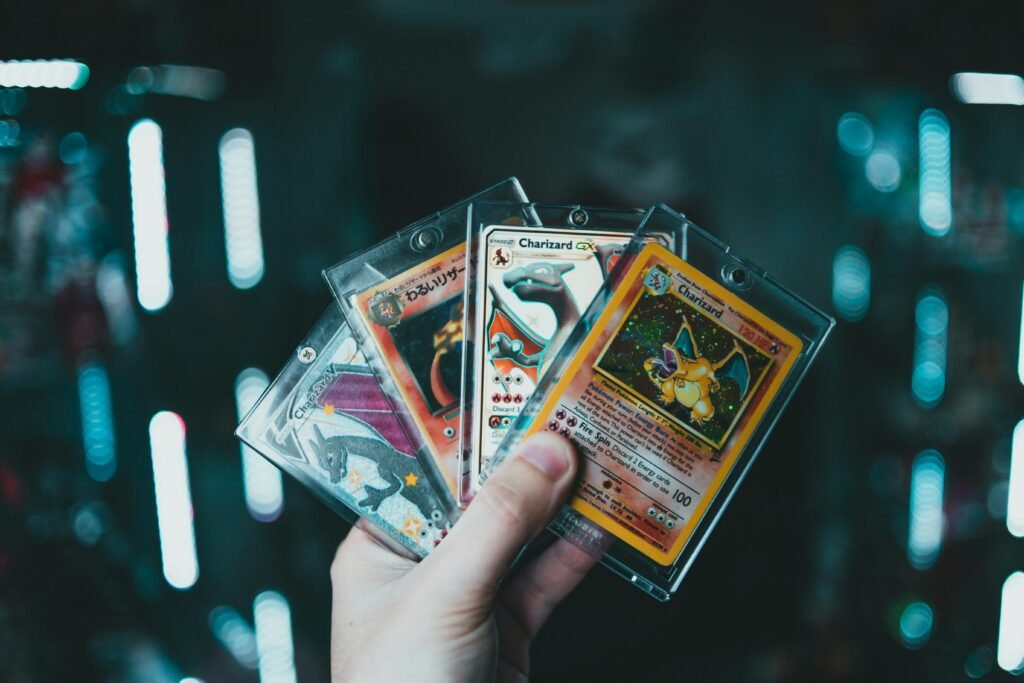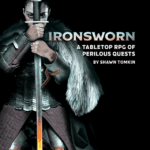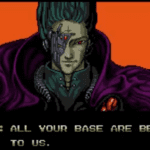Now Reading: The Impact of Video Game Culture on Language and Slang
-
01
The Impact of Video Game Culture on Language and Slang
The Impact of Video Game Culture on Language and Slang

In the rapidly evolving landscape of pop culture, few forces have been as influential and pervasive as video games. From pixelated classics to sprawling, immersive worlds, video games have captured the imaginations of millions. However, their influence extends far beyond entertainment; video games have also profoundly impacted language and slang, subtly shaping the way we communicate in everyday life.
The Birth of Gamer Lingo
The origins of video game slang can be traced back to the early days of arcade gaming. Terms like “high score,” “level up,” and “game over” became part of the vernacular among gamers. As gaming technology advanced and online multiplayer games emerged, a new lexicon developed, tailored to the unique experiences and challenges of these digital worlds.
For instance, “noob” (or “n00b”) became a popular term to describe inexperienced players. Derived from “newbie,” it quickly became a staple in the gaming community, often used to gently tease newcomers. Conversely, a “pro” or “pro gamer” refers to highly skilled players who excel in their chosen games.
The Online Gaming Revolution
The advent of online gaming brought players together from all corners of the globe, leading to a rich and diverse linguistic melting pot. This online interaction accelerated the creation and dissemination of new terms and phrases. The fast-paced nature of online games required quick communication, leading to the widespread use of acronyms and abbreviations.
Terms like “AFK” (away from keyboard), “GG” (good game), and “BRB” (be right back) became common shorthand, enabling players to convey essential information swiftly. These abbreviations soon found their way into everyday online conversations, extending their reach beyond the gaming community.
Memes and Internet Culture
As gaming culture intertwined with internet culture, the creation and spread of memes played a significant role in popularizing gaming slang. Memes like “Do a barrel roll!” from “Star Fox 64” or “The cake is a lie” from “Portal” became cultural touchstones, their origins rooted in specific game contexts but their appeal universal.
The language of memes is inherently playful and often self-referential, resonating with the humor and creativity of the gaming community. This meme-driven spread of slang has helped embed gaming terms into broader internet culture, making them accessible even to those who may not identify as gamers.
Common Gaming Lingo
AFK: Away from keyboard
Aggro: Drawing the attention of enemies in a game
Alpha Strike: A coordinated attack meant to overwhelm the opponent quickly.
AoE: Area of Effect, a spell or ability that affects multiple targets within a certain area
Aimbot: Software used to improve a player’s aim automatically.
Backdoor: Attacking an enemy’s base or objective while avoiding confrontation.
Baiting: Luring an enemy into a trap.
Bind: Assigning specific actions to particular keys or buttons.
Bodyblock: Positioning oneself to obstruct an enemy’s movement.
Boss: A challenging enemy, often at the end of a level
Bot: An automated character controlled by the game’s AI
Botting: Using automated programs to perform tasks in a game.
Burst Damage: Delivering a large amount of damage in a short period.
BRB: Be right back
Buff: Temporary enhancement or improvement to a character’s stats
Camp/Camper: Staying in one spot to gain an advantage, often considered a cheap tactic
Carry: To lead a team to victory, often by an exceptionally skilled player
Cheese/Cheesy: Using an unfair or overpowered strategy
Clan/Guild: Group of players who regularly play together
Clipping: Moving through solid objects due to glitches.
Cooldown: The period of time before a player can use an ability again
Cooldown Reduction (CDR): Reducing the cooldown time of abilities.
Creeps: Small, often non-threatening AI-controlled enemies.
Crowd Control (CC): Abilities that disable or impair enemy characters.
Debuff: A negative effect applied to a character to weaken them
Despawn: The process of an entity disappearing from the game.
Ding: The sound or notification when a player levels up
DoT: Damage over Time, an effect that inflicts damage continuously over a period
DPS: Damage per second, a measure of damage output
Easter egg: Hidden feature or secret in a game
Face Tank: Absorbing damage directly without evasion.
Farm: Repeatedly defeating enemies or completing tasks to gain resources
Feeding: Intentionally dying to give the enemy team an advantage.
FTW: For the Win, an expression of excitement or triumph
Flanking: Attacking from the sides or rear.
Fog of War: Areas of the map that are not visible to the player.
Frag: To kill or eliminate an enemy.
Gank: To ambush and defeat an enemy, often with help
GG: Good game
Gib: To kill an enemy in a way that causes their body to explode.
Gimp: A character that is underpowered or poorly equipped
Grind: To engage in repetitive tasks for rewards
Glass Cannon: A character or build that deals a lot of damage but is very fragile.
God Mode: An invincible state, often through cheats.
Healer: A character whose main role is to heal others
Hitbox: The invisible area that detects collisions in games.
Hit Scan: Instantaneous weapon fire that does not require travel time.
HUD: Heads-Up Display, the on-screen interface showing game information
Instakill: An attack or ability that kills an opponent instantly.
Invincibility Frame (I-Frame): A brief period during which a character is immune to damage.
Juke: Dodging or avoiding an enemy’s attack or ability.
K/D Ratio: Kill/Death Ratio, a measure of a player’s performance
Kiting: Attacking while maintaining a distance from the enemy.
KS: Kill Steal, taking the final blow on an enemy another player is attacking
Lag: Delay between player action and game response
Leech: Benefiting from others’ efforts without contributing.
Leeroy Jenkins: Rushing into a situation without planning.
Leet/1337: Elite or highly skilled.
LoS: Line of Sight, the ability to see or target an enemy
Loot: Items or rewards obtained in-game
Meta: The most effective tactics available
Meta Slave: A player who strictly follows the current best strategies.
MIA: Missing in Action, an enemy player who is not currently visible on the map
Min-maxing: Optimizing a character to be as powerful as possible in certain areas
Mule: A secondary character used for extra storage.
Nerf: To weaken or make less effective
Noob/n00b: Inexperienced player
NPC: Non-Player Character, a character controlled by the game’s AI
Nuke: A powerful attack that deals massive damage.
Off-Tank: A secondary tank character who also deals damage.
OOM: Out of Mana.
OP: Overpowered
Patch: An update to the game that fixes bugs or adds new content
Peel: Protecting teammates by distracting or deterring enemies.
Ping: The network latency between the player’s computer and the game server
Pro: Professional or highly skilled player
Proc: An effect triggered by a chance occurrence.
PvE: Player versus Environment, gameplay against computer-controlled enemies
PvP: Player versus Player, gameplay against other players
Quest: A task or mission for players to complete
Rage quit: To abruptly leave a game out of frustration
Rekt: Destroyed or dominated.
Rez/Resurrect: To bring a character back to life after they have died
RNG: Random Number Generator, referring to luck or chance.
Rushing: Quickly advancing or attacking.
Sandbox: A game with an open world and few restrictions.
Scrub: A derogatory term for a player who is considered unskilled
Skill Shot: An ability that requires aiming.
Smash: To defeat an opponent decisively.
Smurf: An experienced player using a new account to play against less-skilled opponents
Snowball: Gaining an advantage that continually increases.
Spawn: To appear in-game
Spawn Point: The location where characters or items appear in the game
Stacking: Accumulating multiple effects or items.
Stealth: Remaining undetected by enemies.
Sustain: A character’s ability to recover health or mana over time.
Tank: A character designed to absorb damage and protect others
Taunt: An ability that forces enemies to attack the user
Throwing: Deliberately or accidentally losing a game.
Tilt: Playing poorly due to frustration or anger.
Toxic: Negative or abusive behavior by players
TP: Teleport, the ability to move instantly to another location.
True Damage: Damage that ignores defenses.
Turtling: Playing defensively to prolong the game.
Twink: A low-level character equipped with high-level gear
Utility: Abilities that provide support rather than damage.
Wallhack: A cheat that allows players to see through walls.
Wave Clear: The ability to quickly eliminate groups of enemies.
Wipe: When an entire team is defeated.
XP Farming: Gaining experience points through repetitive tasks.
Yolo: You Only Live Once, often used to justify risky behavior
Zerg Rush: Overwhelming the opponent with a large number of units.
Zoning: Controlling an area to prevent enemy access.
Video games have influenced the way we talk! It’s crazy how much power they have over our language and slang. From those old school arcades to the huge online worlds we’re in now, gaming has been more than just about having fun – it’s shaped the way we speak as well. As gamers discover new titles to explore, the words we pick up will keep changing how we chat, both in and outside of games.











